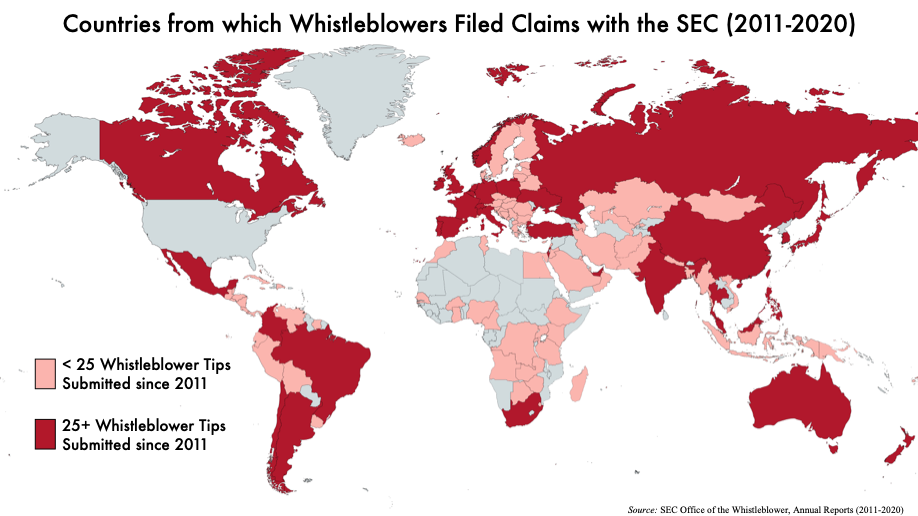Did you know that the average person spends about two years of their life on the phone? Imagine if those calls were about reporting insider trading! In the world of finance, whistleblowers play a crucial role in exposing insider trading. This article dives into what makes a whistleblower, how they operate, and why their contributions are vital for justice in financial markets. We explore their motivations, the legal protections available, and the potential risks they face. Furthermore, you'll learn how whistleblowers influence investigations and prosecutions, the evidence required to support claims, and the impact on penalties for insider trading. For those looking to foster integrity in trading practices, this insight is essential. Join us at DayTradingBusiness as we unpack the complexities surrounding whistleblowers in insider trading cases.
What is a whistleblower in insider trading cases?
A whistleblower in insider trading cases is someone who reports illegal or unethical trading activities, often revealing confidential information about insider knowledge used for stock manipulation. They typically expose executives, employees, or traders who misuse privileged information for personal gain. Their tips lead to investigations and legal action against those involved in insider trading.
How do whistleblowers expose insider trading?
Whistleblowers expose insider trading by providing detailed evidence of illegal activity to authorities like the SEC or FBI. They often report confidential information or insider knowledge, sometimes risking retaliation. Their tips lead to investigations, subpoenas, and arrests of traders or executives involved in illegal insider trading.
Why are whistleblowers important in insider trading investigations?
Whistleblowers uncover hidden insider trading activities by exposing illegal trades and sharing crucial evidence. They provide insider knowledge that authorities wouldn't find otherwise, speeding up investigations. Their tips often lead to stronger cases, holding traders accountable and deterring future misconduct. Without whistleblowers, many insider trading schemes might stay undercover, harming market integrity.
What motivates whistleblowers to report insider trading?
Whistleblowers are motivated by a sense of justice, ethical duty, or personal integrity. They want to expose illegal insider trading to protect market fairness and prevent financial fraud. Some are driven by the potential for financial reward through whistleblower incentives. Others seek to hold wrongdoers accountable and maintain trust in the financial system.
What laws protect whistleblowers from retaliation?

The Sarbanes-Oxley Act and Dodd-Frank Act protect whistleblowers from retaliation in insider trading cases.
How does the SEC handle whistleblower reports on insider trading?
The SEC investigates whistleblower reports on insider trading thoroughly, offering protections and incentives. Whistleblowers can submit tips confidentially via the SEC’s Office of the Whistleblower. If the tip leads to a successful enforcement action, the SEC awards a percentage of the recovered penalties, typically 10-30%. The SEC keeps whistleblower identities confidential and prohibits retaliation. The agency prioritizes insider trading cases when tips reveal significant misconduct.
What are the benefits of whistleblowing in insider trading cases?
Whistleblowing exposes illegal insider trading, leading to stronger market integrity. It helps authorities catch and punish offenders, deterring future misconduct. Whistleblowers protect investors by revealing unfair advantages and maintaining fair trading. Their disclosures can uncover complex schemes, saving companies and shareholders from bigger losses. Overall, whistleblowing promotes transparency, accountability, and trust in financial markets.
What risks do whistleblowers face when reporting insider trading?
Whistleblowers face retaliation, job loss, legal threats, and damage to reputation when reporting insider trading. They risk being ostracized by colleagues and facing lawsuits for breaching confidentiality. In some cases, they encounter personal threats or harassment to silence them.
How can whistleblowers remain anonymous during insider trading reports?

Whistleblowers can stay anonymous by submitting reports through secure, third-party hotlines or legal channels that protect their identity under confidentiality laws. Using encrypted communication methods and anonymous online portals also helps hide their identity. Some organizations or regulatory agencies have strict confidentiality protocols to prevent disclosure during investigations. Consulting a lawyer before reporting can ensure their identity remains protected.
What evidence do whistleblowers need to support insider trading claims?
Whistleblowers need detailed, credible evidence like trading records, communications (emails, messages), financial documents, or insider tips that link specific trades to confidential information. They must provide concrete proof showing how the insider information influenced the trading decisions. Documentation that directly ties the insider's knowledge to the illegal trades strengthens their case.
How do whistleblowers influence insider trading prosecutions?
Whistleblowers expose insider trading by providing key evidence and insider information that prosecutors use to build cases. Their disclosures often lead to investigations, arrests, and convictions. Without whistleblowers, many insider trading schemes might remain hidden, making it harder to hold traders accountable. Their tips can prompt authorities to uncover complex schemes and gather concrete proof, significantly impacting the success of insider trading prosecutions.
What role do financial institutions play in whistleblower cases?
Financial institutions often serve as the platform where insider trading occurs, making them key players in whistleblower cases. They may hold evidence of illegal activity, such as suspicious transactions or internal communications, that whistleblowers expose. Whistleblowers within these institutions help regulators uncover insider trading by revealing misconduct, aiding investigations, and providing crucial insider information. Their disclosures can lead to legal action, fines, and reforms within the financial sector.
How does whistleblower reporting impact insider trading penalties?
Whistleblower reporting can lead to harsher insider trading penalties by providing authorities with key evidence, increasing the likelihood of conviction, and enabling more severe sanctions. Their disclosures often uncover hidden misconduct, accelerating investigations and strengthening cases against traders. This can result in higher fines, longer prison sentences, and broader enforcement actions.
What are common challenges faced by whistleblowers in these cases?
Whistleblowers in insider trading face retaliation, legal risks, and career damage. They often struggle with fear of retaliation from colleagues or employers, and may face lawsuits or threats. Protecting their identity is hard, risking exposure and personal harm. They also confront skepticism and disbelief, making it difficult to have their claims taken seriously. Financial and emotional stress from blowing the whistle adds to their challenges.
How can organizations encourage ethical behavior and discourage insider trading?
Organizations can encourage ethical behavior and discourage insider trading by creating clear reporting channels for whistleblowers, protecting them from retaliation, and fostering a culture of transparency. Implementing regular ethics training and strong internal controls also helps employees recognize and resist unethical practices. Recognizing and rewarding whistleblowers who report insider trading can further reinforce ethical standards.
Conclusion about The Role of Whistleblowers in Insider Trading Cases

Whistleblowers play a crucial role in exposing insider trading, acting as key informants in investigations that uphold market integrity. Their motivations, protections under the law, and the challenges they face are pivotal in understanding the dynamics of insider trading cases. By providing evidence and influencing prosecutions, whistleblowers drive accountability in the financial sector. For those navigating the complexities of trading, leveraging insights from resources like DayTradingBusiness can enhance your understanding of both ethical practices and the implications of insider trading.